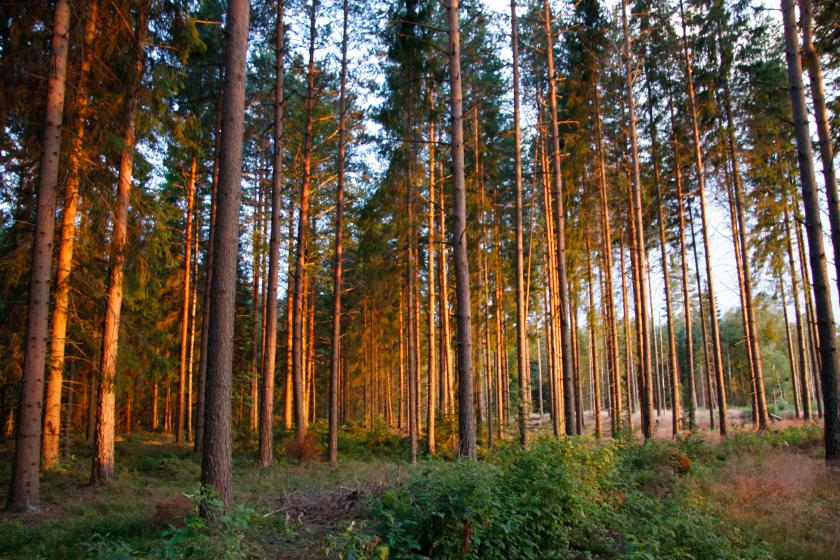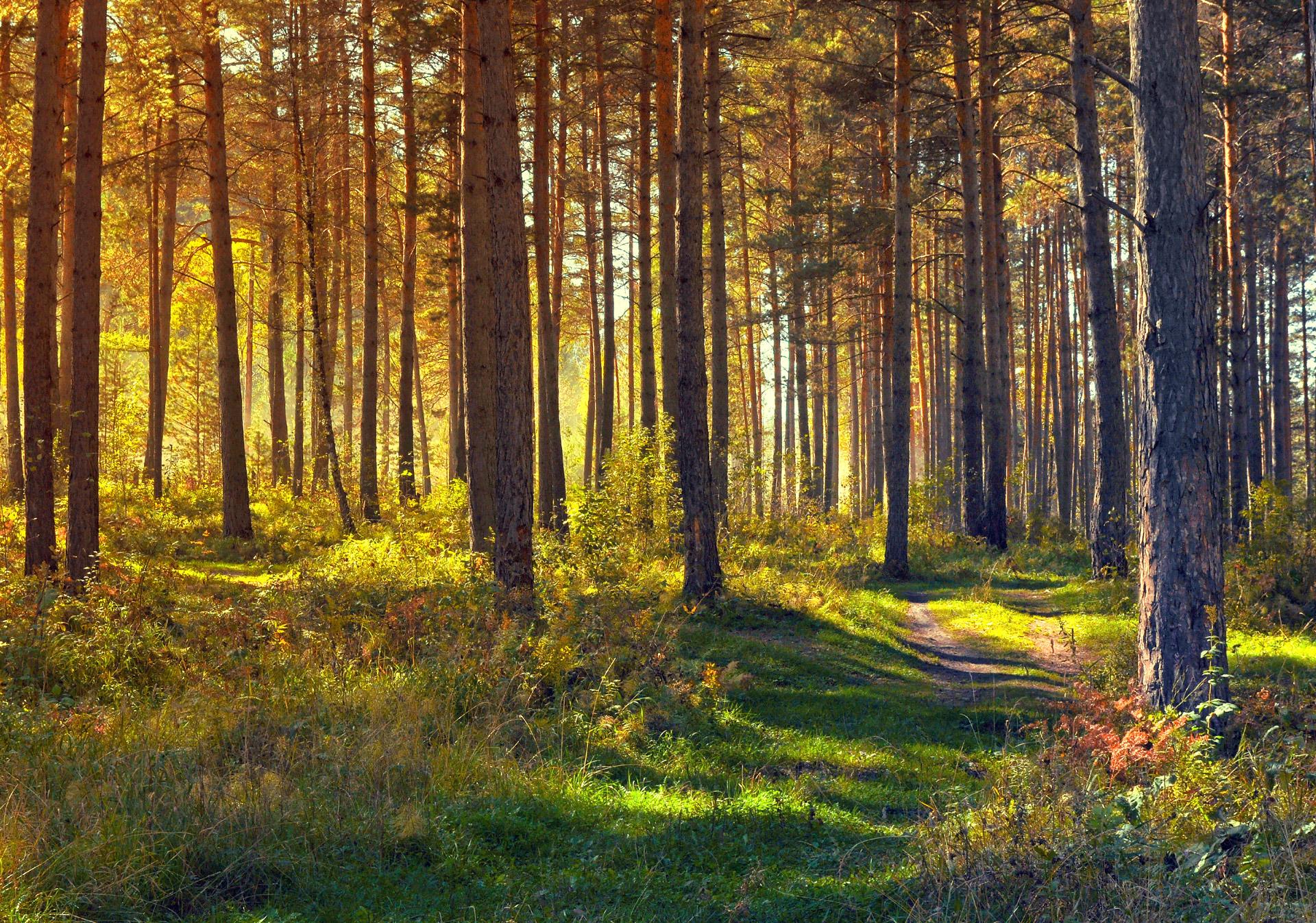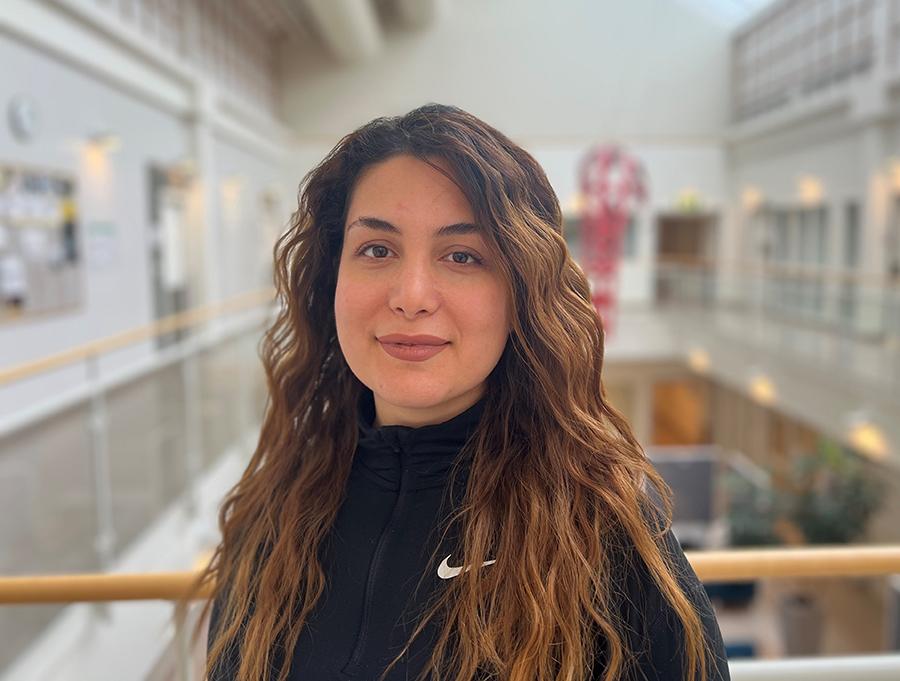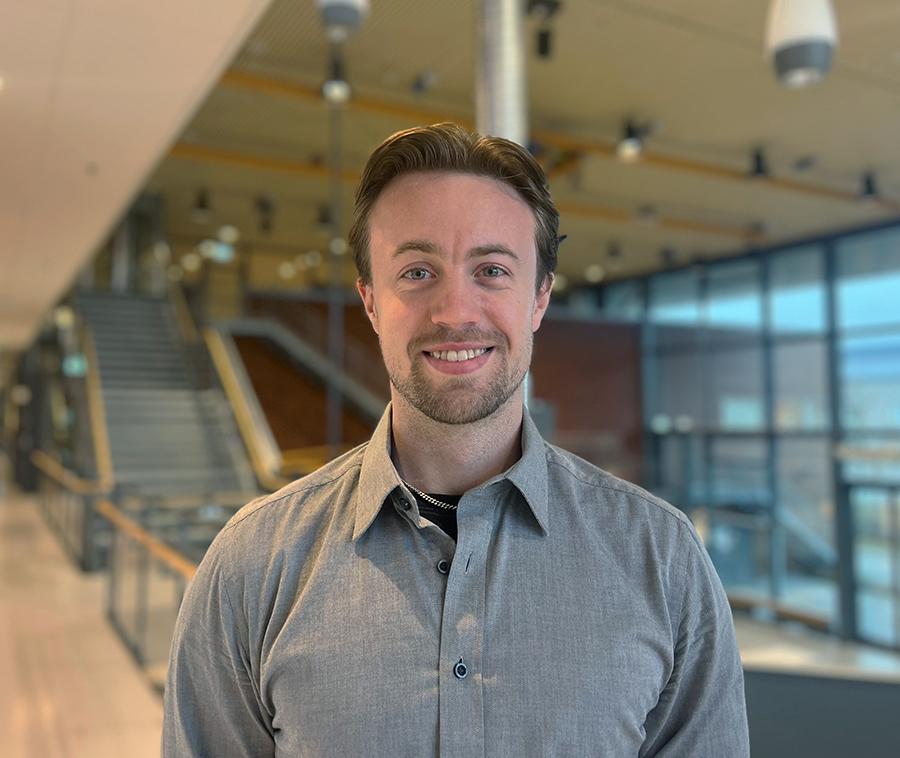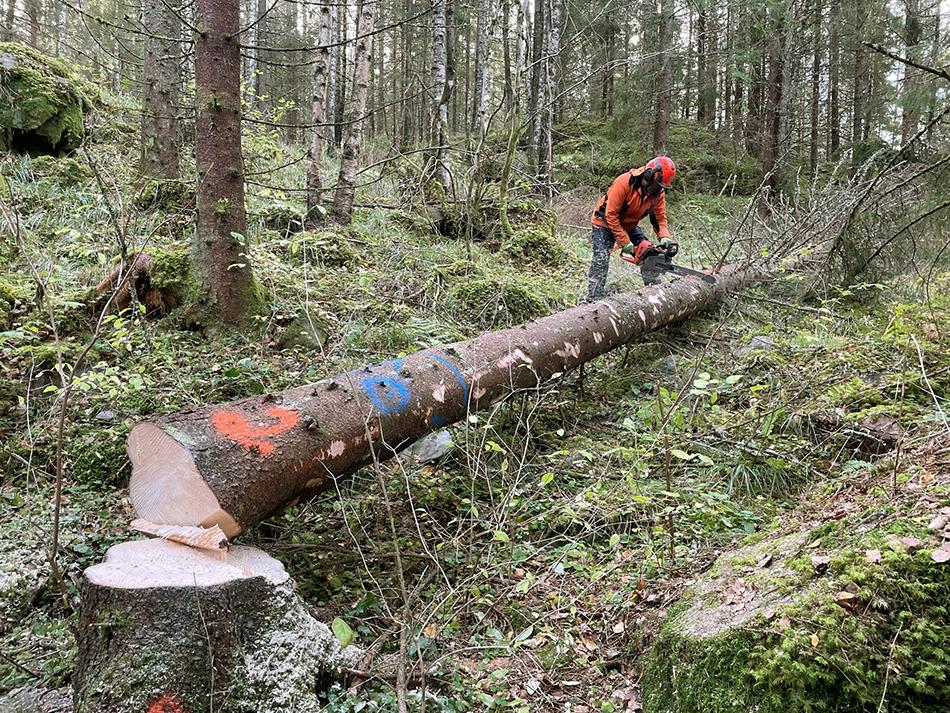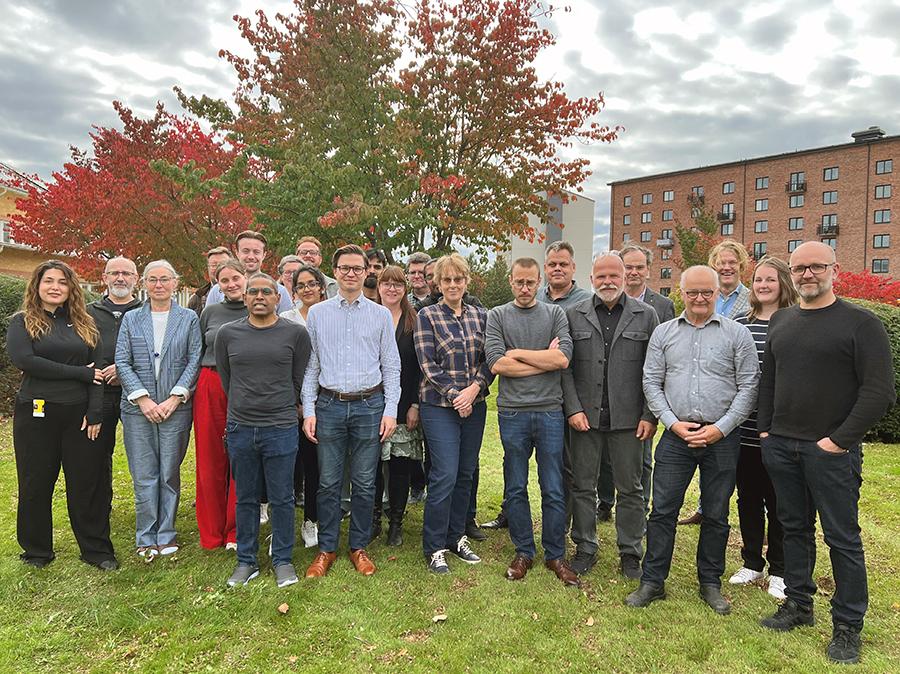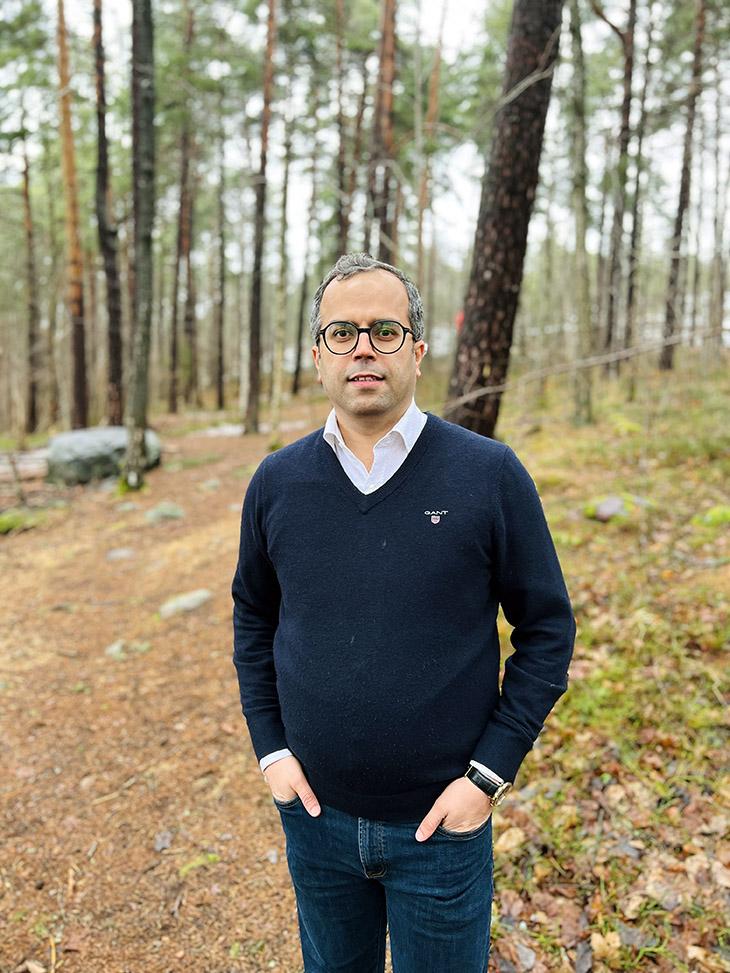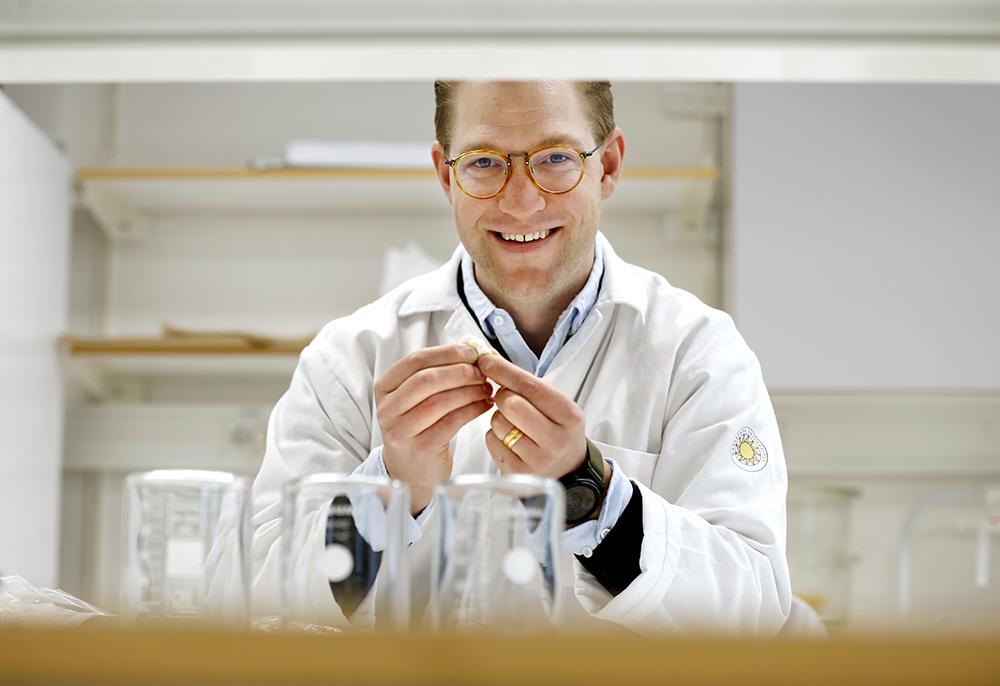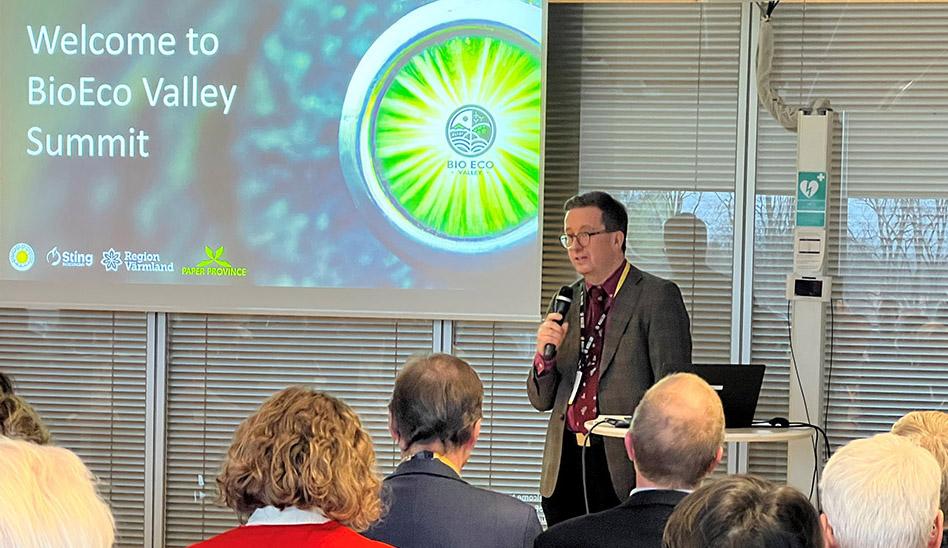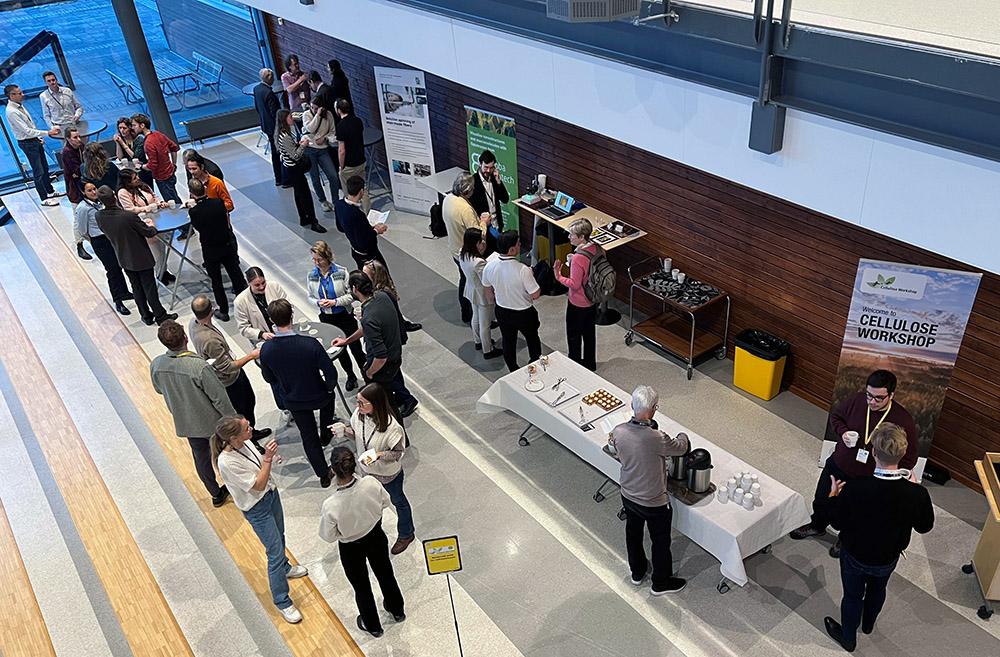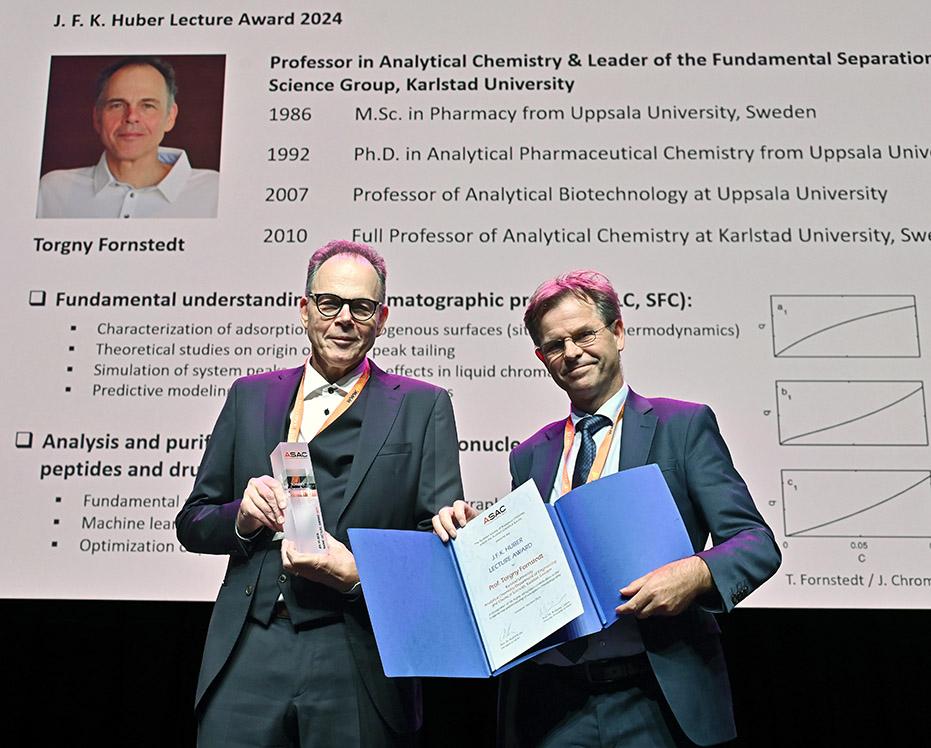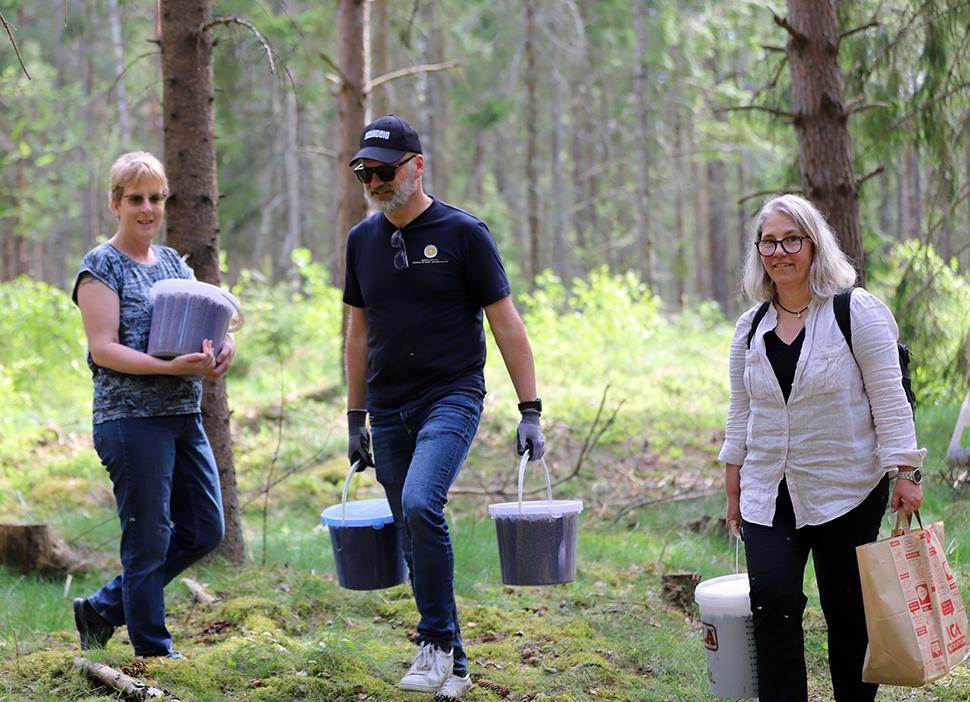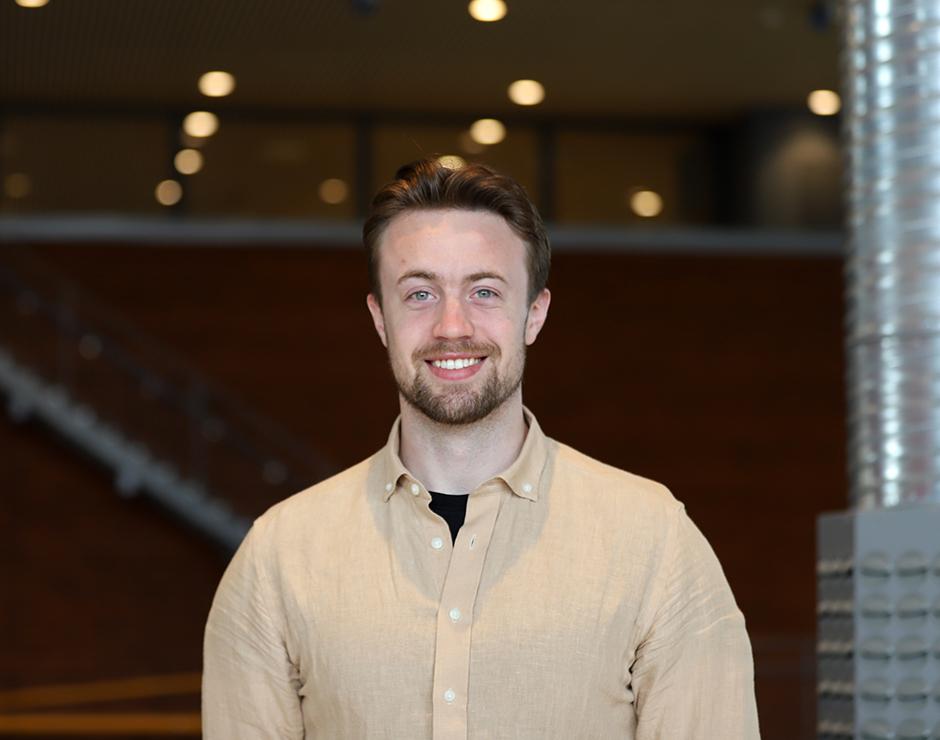News
-
2026-02-12
Elise's presentation won first prize
At the Swedish Society of Paper and Pulp Engineers' Ekmandagar on January 27, 2026, Elise Meurs, a doctoral student in chemical engineering at the Exact Industrial Research School, won the first prize in the prestigious presentation competition.
– The competition is conducted in Pecha Kucha format, a presentation format with 20 slides and only 20 seconds per slide, says Elise Meurs.
-
2025-11-18
Eucalyptus Fibers in Greaseproof Paper Save Energy
In a study conducted in collaboration with Nordic Paper, it was found that the addition of eucalyptus fibers saved energy during production and also contributed to improved pulp and paper properties.
– My latest work has focused on improving the energy efficiency of the refining process for greaseproof paper pulp at Nordic Paper by adding eucalyptus fibers to the pulp mixture, which otherwise consists of long-fiber pulp or softwood pulp, says Björn Öman, industrial PhD student at the Exact industrial research school.
-
2025-10-06
Naturally Fast-Growing Spruce Trees Have Many Long Fibers
Rapid height growth may positively influence fiber length in Swedish spruce wood. A case study investigated wood samples from 38-year-old of Norway spruces (Picea abies) at one of Sweden’s most naturally fertile forests.
– Long fibers produce strong paper and cardboard products due to an increased number of bonds, says Björn Sjöstrand, Associate Professor of Chemical Engineering at Karlstad University. The advantage of increased strength broadens the range of applications, and the same strength can be achieved with less material.
The hypothesis for the study was that trees with fast height growth may have longer fibers, and thus provide longer pulp fibers, compared to lengths previously reported in Sweden.
-
2025-10-06
Autumn Meeting with AI Theme
The autumn meeting of the EXACT industrial graduate school offered two days filled with discussions and workshops. This time, the theme was AI — its possibilities, but also its ethical aspects.
– It’s always a pleasure when the industrial graduate school can bring together PhD students, supervisors, and company mentors to discuss project progress, says Jörgen Samuelsson, Associate Professor of Chemistry and Director of the graduate school. Our autumn and spring meetings are important opportunities to exchange experiences and discuss ongoing research. It’s also a chance to talk about shared challenges in doctoral work, and this time we focused on AI.
-
2025-09-19
Research for energy-efficient paper manufacturing
Paper manufacturing is very energy-intensive, but there is great potential for improving energy efficiency. In a comprehensive research project conducted in close collaboration with industry, researchers at Karlstad University have used data modelling and laboratory and pilot-scale experiments to generate new knowledge that can help streamline the processes.
– Wood fibres have an incredible ability to retain water and clump together, which poses challenges in the production of paper and paperboard, says Björn Sjöstrand, docent in chemical engineering at Karlstad University. To create smooth and even paper products, we must prevent the fibres from clumping together. So, what is the solution? Lots of water. As much as 99.8 per cent water at the start of the process. Water helps separate the fibres and creates physical space between them, which makes it possible to create a smooth sheet of paper.
-
2025-06-10
Research for Sustainable Paper Manufacturing
A new research project has been launched to improve production efficiency and reduce resource consumption within the forestry industry.
– Sustainability is a central focus of the project, which aims to decrease energy and resource usage in the forestry sector, says Björn Sjöstrand, Associate Professor in Chemical Engineering. By developing user-friendly numerical models for optimizing dewatering and drying, the project promotes energy-efficient production and lower carbon emissions. The models enable simulations of various strategies without costly trials, accelerating the development of energy-saving processes.
